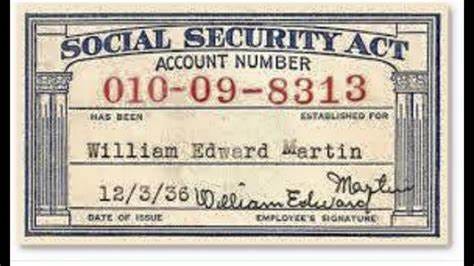On August 14, 1935, President Franklin Roosevelt signed the Social Security Act. Most women were excluded under the Act since typical “female” jobs such as teachers, nurses, and hospital employees were not covered. There was also a “teeny bit of concern” from people such as Senator Thomas Gore from Oklahoma that the paying of a stipend to the elderly and unemployed was socialism. Title IV, called “Mother’s Pensions”, gave women some benefits based on their husbands’ records, assuming, of course, that mothers were unemployed. There have been many changes and amendments to the original Social Security Act and, frankly Mr. Roosevelt, it’s gotten pretty complicated. But one thing is crystal clear: the longer you can wait, the more you can get.
My husband qualified for Social Security Disability in 2006; it was an uphill battle to get it approved. When he passed away in 2019, I was too young to claim benefits as his widow. Those first months were tough with a significant decline in income for me and my disabled son. When I turned 66, I was able to apply for Ron’s benefits and it was pretty easy.
But I knew, based upon the number of years I’d worked and my earnings, that mine would be more. How much more? Since I was already receiving Ron’s, no online SSA site could tell me.
Once I reached 70, though, I’d maxed out my benefits. I made an appointment in January to speak with an agent about switching from Ron’s to mine. The very nice agent I spoke to in February told me what my payment would be—significantly higher than Ron’s—and assured me that if I continued to work, I could continue to grow the benefit. But, yes, of course, I could switch now.
So I did.
Will I continue to work, part-time? Maybe. But the point is that having maxed out my SSA, I can work if and when I want.
And God bless you, Mr. Roosevelt!
NOTE: Please, no fear-mongering comments about Social Security running out of money. I’ll enjoy what I’ve earned as long as I can!
What’s been your experience with SSA? Have you found it complicated or easy?






I went on Social Security Disability in 2016. The only reason I got it so fast - six months from last date of work - is one of my (many) diagnoses is on a magic list they have, my lymphedema. Turns out if your diagnosis is on the magic list, it doesn't take much documentation to get them to agree to your disability. If your diagnosis is *similar* to one on the list, it takes longer, and if you diagnosis is NOT on the list, no matter how disabling, it's an uphill battle to get them to recognize you. I didn't even know about the magic list until I went to apply for myself. My husband keeps saying he wants to just retire at the earliest age possible (he works security), but I tell him that the longer he waits, the more he will be eligible for, and he should wait as long as possible since over the years his security jobs never paid as well as my medical transcription did, particularly when I was a hospital employee. It's all in the math.
I had a different experience, due to something called the "windfall elimination provision", which uses a different calculation for those who receive a government pension. In essence, it penalizes those who paid into the system before taking a government position. There's still a "benefit", just at an adjusted reduced amount.